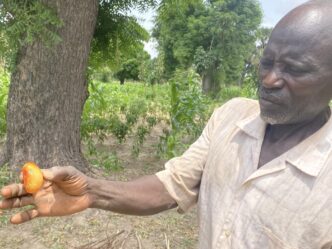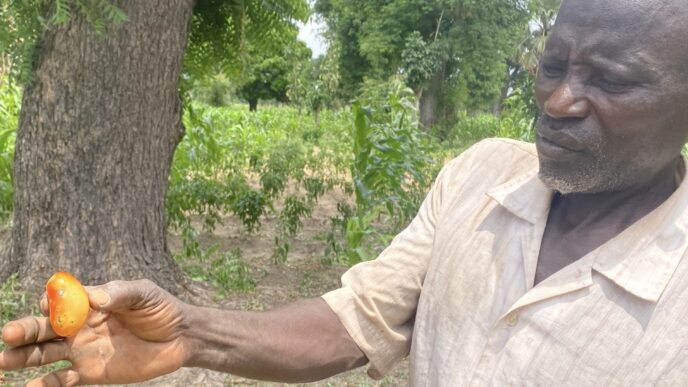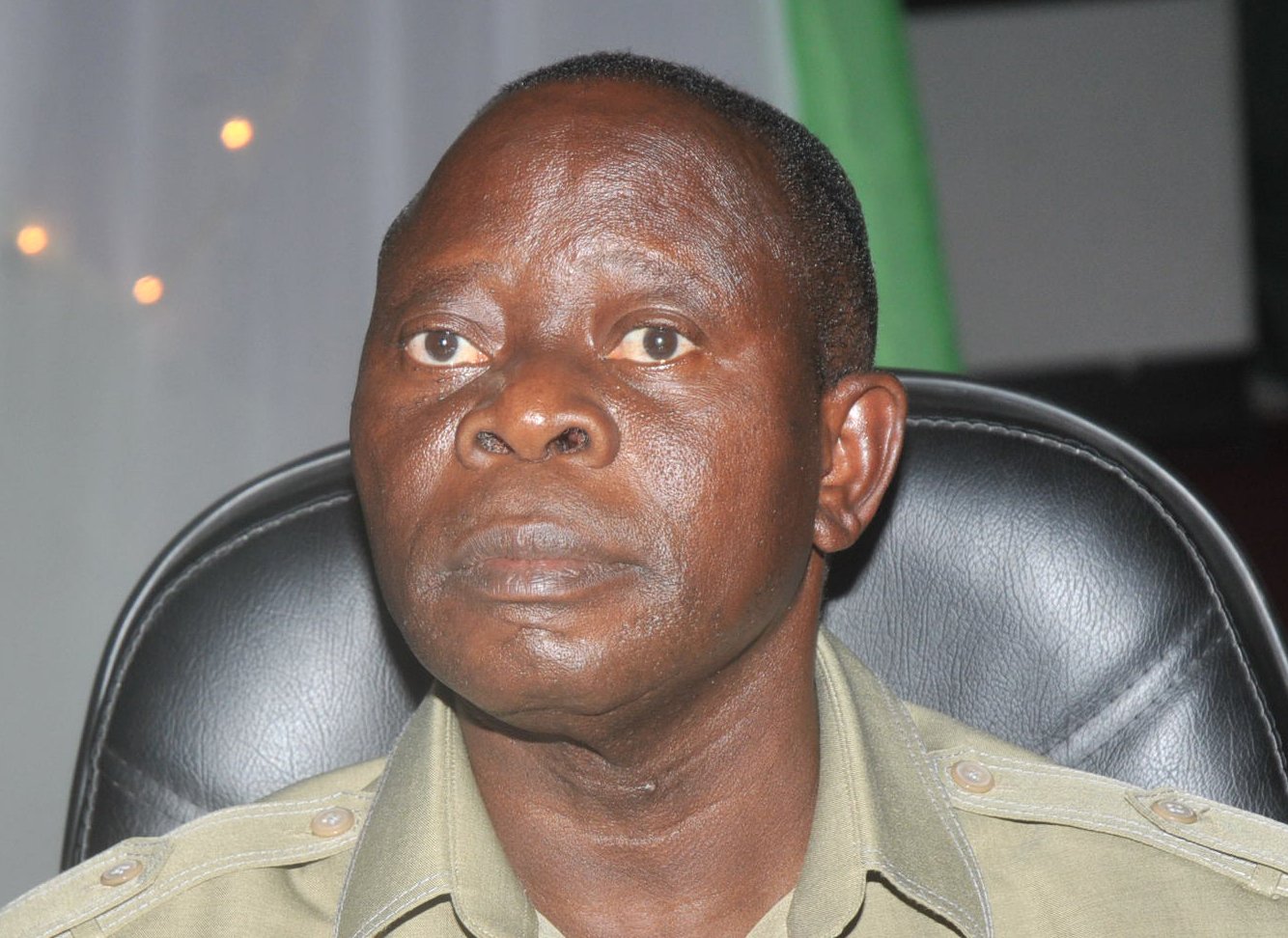Temitope Ilori, director-general of the National Agency for the Control of AIDS (NACA)
In March, President Bola Tinubu appointed Temitope Ilori as the director-general of the National Agency for the Control of AIDS (NACA), making her the first female to lead the organisation.
In this interview with TheCable’s SAMUEL AKPAN and JESUPEMI ARE, Ilori speaks on the efforts NACA is making to ensure Nigeria soon starts local production of antiretroviral drugs.
TheCable: Recently, you said 2 million Nigerians are living with HIV, with 1.7 million receiving treatment. What about the remaining 300,000?

Ilori: The figure of 2 million Nigerians living with HIV is an estimate. Remember in 2018, there was a country-wide survey to estimate the figure of people living with HIV and we got that figure. After that, we cleaned a lot of data. Along the line, some people died, and some moved to a new location. Maybe somebody already receiving treatment in Lagos moved to Port Harcourt, and sometimes they would be captured twice. So, we are working with a figure of about 1.6–1.7 million Nigerians.
Advertisement
Be that as it may, like you rightly said, there are still some people who are not on treatment, and that is why our surveillance continues. Sometimes people test positive, and when you tell them their status, they are afraid and don’t want to access treatment, or they access treatment once and they run away. That is why we keep following up on them because when we test, we make sure that we link them up to treatment centres. We do a lot of counselling, trying to prepare their mind that HIV is a chronic illness, it is something you have to live with for the rest of your life.
It is just like being hypertensive or being diabetic. What I mean is that even though we have treatment and drugs that will help to suppress the infection, you cannot say you are cured 100% because obviously we don’t have a total cure for it yet. So, we have to encourage them and make sure that they are in the right frame of mind to start treatment. For those on treatment, we keep following them up; we keep our surveillance on them to ensure that they stay on treatment. It is a continuous exercise.
TheCable: What strategies is NACA using to reach people who are not on treatment?
Advertisement

Ilori: HIV is a space where you don’t walk alone. Even though this is the National Agency for the Control of AIDS and we midwife the multi-sectoral response, we are not the only stakeholder in the space. We have donor partners, implementing partners, civil societies, and NGOs that we are working with. Even in the ministry of health, we have programmes like the National AIDS, Sexually Transmitted Infections Control and Hepatitis Programme (NASCP) that we are working on.
From the last mapping that was done, we have over 25,000 health facilities across Nigeria that offer HIV treatment, testing and treatment. Aside from that, we have over 15,000 non-conventional centres like traditional birth attendants and mission houses that we are collaborating with. We give them test kits. They can test women, particularly pregnant women and even other people that access their care and we collect data and reports from them. We also have people working in the communities. They work using community structures like traditional rulers, market women, and even door-to-door to access some of these people.
Just last week, we inaugurated a steering committee for the antiretroviral therapy impact survey. We are doing it in Akwa Ibom state. The minister will be flagging it off very soon. It is a way of making sure that we are in the community to assess the people and the prevalence and determine how many of these people are actually on treatment. It will even determine how effective our antiretroviral therapy is and how many have low viral levels. This is continuous surveillance to know what our figures are in the nation.
TheCable: What progress has been made to reduce mother-to-child transmission?
Advertisement
Ilori: Unfortunately, our coverage among pregnant women in terms of mother-to-child transmission is about 34–35%, as against the global 95% target. We are trying to reach as many pregnant women as possible.
The media also has a role to play. You have a strong role to play in helping us to advocate for every pregnant woman to go to health facilities. We have over 50,000 conventional and non-conventional health facilities that offer HIV testing and treatment. Let’s advocate for every pregnant woman to ensure that she is tested during pregnancy, and if found to be positive, she is placed on treatment. The medications are safe, even in pregnancy. When they deliver their babies, we have medications that we give to the newly born babies to ensure that they do not contract HIV. This is an appeal that we should ensure that we prevent mother-to-child transmission and ensure that no child is born HIV positive.
TheCable: Let’s say 35% is quite low. It is not even up to average. What is the biggest challenge?

Ilori: One of the biggest challenges is stigma and discrimination. That is why we keep saying we should try not to stigmatise people living with HIV/AIDS. Sometimes, if people test positive and then they know that they will be stigmatised, they will not want to access healthcare. They will run away from going to hospitals where they can get medications. That is why we are saying, as Nigerians and as the media, we should propagate that you cannot be infected by hugging and living with somebody in the same apartment and sharing offices.
Advertisement
We should embrace them so that they can actually access healthcare, and when they do, it will help us to stem that tide. Part of the innovations and strategies we put in place is the prevention of underage child transmission and the acceleration plan committee that was launched by Tunji Alausa, the honourable minister for state for health, some weeks back. We are working not only at the national level, but also with implementing partners and donor organisations like UNAIDS, WHO, and other international organisations.
We are also working with our sub-nationals, like our state agency for the control of AIDS. They oversee the local government AIDS control agency. I use this medium to also encourage our governors and then chairpersons of local governments. Particularly now that they have autonomy, they should help with empowerment.
Advertisement
TheCable: In rural areas where people understand what HIV is, how does NACA help in educating pregnant women over there to take drugs?
Advertisement
Ilori: We have what we call mentor mothers. Many HIV-positive women who have gone through the process produce children who are HIV-negative because they have been taking their medications. So, when you hear the story of someone who has passed through the system and is telling you their life story and the positive outcome, you are encouraged. We have this in many of our rural areas. They help us to reach out to all these other people.
As I said, we have these subnational agencies that assist us. We also work with religious leaders. We have religious CSOs that work with religious bodies. When your pastor, imam, or somebody you respect preaches on the pulpit and tells you about some of these things, the dangers, and the positive outcomes, people tend to listen to them. We also have community-based society organisations that are known in that community, they speak the local language. We have flyers and factsheets written in different languages that we share among some of these women or the general population that have such cases. We use the media — TV, radio, print media, and even social media. We have productions on TikTok just to be able to reach the right population.
Advertisement
TheCable: From the survey, what age group has the highest number of infections?

Ilori: Women aged 15 to 49 are most at risk for obvious reasons. I think it is even a similar trend globally. The last data says they are three times more prone to infection. Even the prevalence shows that they are three times more at risk. For obvious biological reasons, because of the body structure of the woman, they are more exposed during sexual intercourse, especially if they have unsafe sexual intercourse.
Of course, due to socio-economic issues, in many places, women cannot negotiate sex. You can’t tell your spouse, boyfriend, or fiancé to go and use a condom. They are vulnerable. Unfortunately, you have that level of inequality. Then, of course, sometimes women are more when you talk about commercial sex workers and things like that. So, that really puts them at a higher disadvantage, and they’re more at risk.
TheCable: Fighting HIV requires money. How does NACA get funds beyond partner organisations?
Ilori: There are domestic resources. What we mean is that, just some years back, we launched the HIV trust fund. I would say that not much is active now, but we are trying to rejig and rejuvenate it. We have private organisations, some businesses, and big philanthropists and industries joining us in this fight. Of course, the government of Nigeria creates a budget for us, and we are advocating for more. Apart from the federal government, the state government and local government also have a huge role to play in this regard.
TheCable: From your assessment, is there a high level of compliance with the law prohibiting stigmatisation of people with HIV?
Ilori: Well, there is better information and awareness. I think the situation is better than 20 years ago or 10 years ago. I know there is an anti-discrimination law. We are hoping that our different state houses of assembly will domesticate this. Some states have domesticated it. But in some states, it is not yet a law. People can actually access this anti-discrimination law, and if they are stigmatised in their workplaces or schools, people can be fined, depending on the outcome of the investigation.
I know that many years back we had what we called a stigma index survey. We tried to assess the privilege or the level of stigmatisation there in the community, and we noticed that it is dropping. In fact, this year we are scheduled for another survey to actually know the prevalence and level of stigmatisation against people living with HIV and AIDS in the community. It will guide us in what we do next in terms of acts.
This year’s survey will take place soon. But we have some previous reports. These reports were the reasons the anti-discrimination law was put in place and why it has been domesticated in other states. We work with the Gender and Human Rights Commission as well as human rights committees. We do a lot of work with the police and other security agencies just to ensure compliance.
TheCable: What will happen to NACA if Nigeria beats HIV transmission by 2030?
Ilori: The target is that by 2030, HIV will stop being a public health threat. HIV cannot go away. What we mean by that is that people who are already infected will still be living with the disease. If today I am found to be hypertensive, I will be hypertensive till I die. HIV will still be with us. But what we are trying to say is that it will stop being a public health threat; we’ll stop having new infections.
What will be our role at that time if we meet the target? We continue to draw our surveillance to make sure people are tested and also pass out the information on prevention so that there are no new infections. This is to also stem the mother-to-child transmission and ensure they stay on their medications. That will continue to be our role.
When talking about domestic resources, the issue of domestic production of antiretroviral drugs is also a strategy that we can use to ensure that our investment is not too huge and is something that we can manage as a country. At NACA, we are already talking to some pharmaceutical companies that have the competency to be able to produce some of these.
As I speak now, there is no antiretroviral medication that is produced in Nigeria. All the medications are imported. The same thing is true for the HIV test kits. We are talking to pharmaceutical companies to ensure that they can start local production, of course, after having all the necessary pre-qualifications and certifications to start local production of this medication. That would help us in the sustainability agenda.
TheCable: From your discussions with these companies, how soon do you think Nigeria will start producing antiretroviral drugs?

Ilori: Very soon, because we are discussing. In fact, some of them are already setting up plants. Some of them already have a dedicated production line. But they have to get some form of pre-qualification and certification. HIV is a global disease, so you have to meet global best practices. Sometimes, it is not everything that is within our power locally. But very soon.
TheCable: Are there issues with getting the raw materials needed?
Ilori: No. Many of these pharmaceutical companies are already producing some other medications. So many of them are now having a dedicated production line for ARVs. Also, some of them are collaborating with other international pharmaceutical companies that are already producing some of these medications.
As a government, we are giving them all the necessary enabling environment and support to make it seamless. The federal government, NACA, and the federal ministry of health are supporting them.
Add a comment










